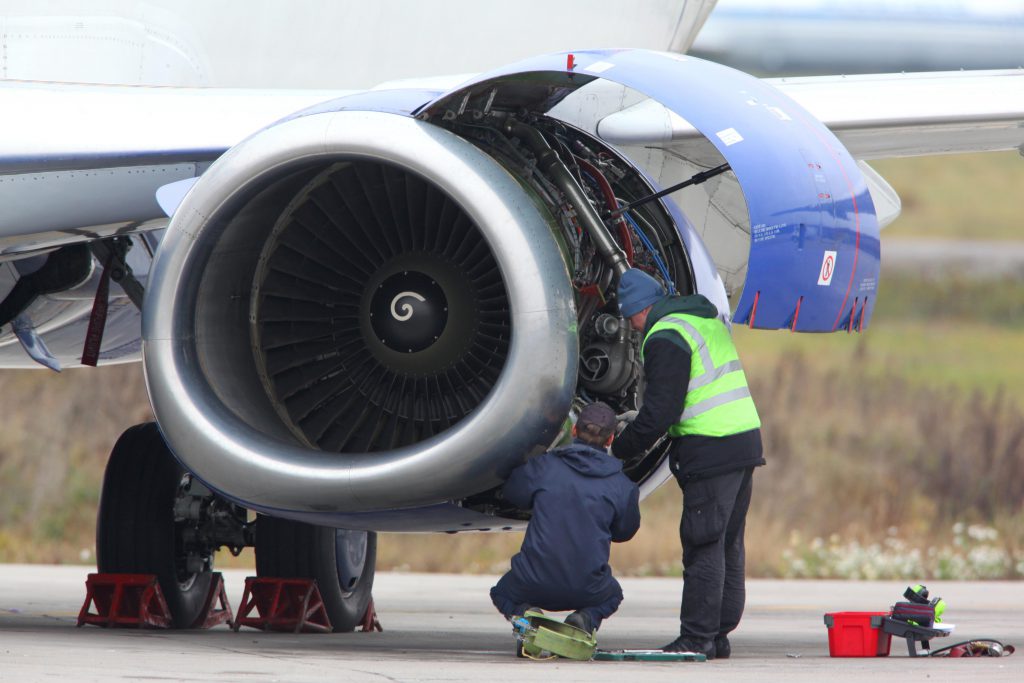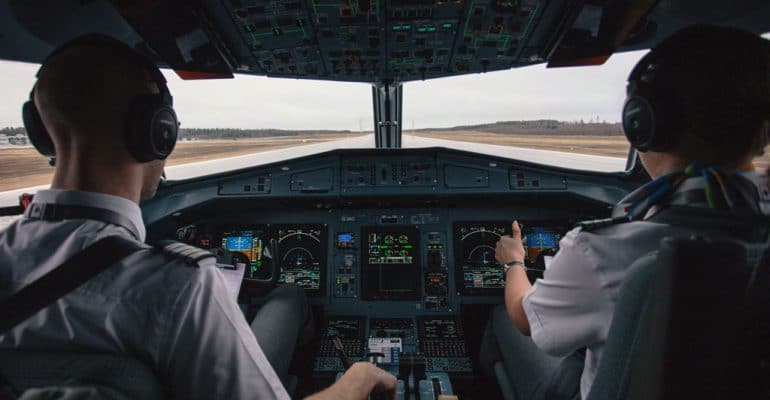In the aviation field, the sky’s the limit on job opportunities. Whether you’re just starting out in aviation or want to explore a new direction, flight operations offers many paths.
For every takeoff, there are hundreds of people working to make sure the transition from ground to sky and back is as smooth as possible for everyone. When you work in flight operations, you’ll be part of a team that manages flight planning and execution including weather, dispatch, route planning/navigation, regulations, and permits as well as aircraft safety and maintenance. These jobs begin long before a flight leaves the ground and continues through the landing of the aircraft.
Wondering how you can be a part of this important team? Let’s take a look at the five top careers in flight operations.
1. Flight Dispatcher
Flight Dispatchers are critical to the process of planning flights. They calculate the amount of fuel needed, assess meteorological conditions, follow flights in-process, advise pilots on changing conditions, authorize or grounds flights based on conditions, and provide flight briefs for the entire crew.
With the BS in Aviation/Aerospace with a Concentration in Operations Management from Everglades University, aspiring flight dispatchers will immediately put their studies into practice with courses like Air Traffic Control, Aviation Meteorology, and Physiology of Flight.
Qualifications for a career as a Flight Dispatcher include:
- Licensed Airman certified by the Federal Aviation Administration (FAA)
- Aircraft Dispatcher certification by the FAA
- Training courses on Airline Systems as required by FAA
- Strong oral and written communication skills

A flight dispatcher’s responsibility is to conduct thorough research in order to create a flight plan for the pilot.
2. Aviation Safety Inspectors
Aviation Safety Inspectors make sure the aircraft and aircraft systems are safe to fly. They ensure the pilot and crew are competent and monitor the safety of aviation facilities, equipment, and procedures. They’re tasked with implementing safety management systems (SMS), establishing systems for and managing hazards, monitoring and measuring the response of SMS, leading SMS training sessions, and ensuring compliance with federal regulations.
Our bachelor’s degree in Aviation includes extensive coursework on aviation safety to give graduates a head start toward this career.
According to the FAA, qualifications for a career as an Aviation Safety Inspector include:
- Valid, unexpired Flight Instructor Certificate with single and multi-engine airplane and instrument airplane ratings. Must have given a minimum of 200 hours of flight instruction in an aircraft
- Professional flying skill as demonstrated in a flight check to Commercial Pilot Certificate with an instrument rating
- Possession of Airline Transport Pilot Certificate or Commercial Pilot Certificate with instrument airplane rating
- Minimum of 100 flight hours within the last three years
- Minimum of 1,500 total flight hours
- Possession of single and multi-engine land airplane ratings
- Possession of a valid second-class FAA medical certificate
- Not more than two flying accidents in the last five years in which the applicant’s pilot error was involved
3. Aviation Manager
An Aviation Manager oversees compliance with local, state and federal regulations and laws. Aviation Managers ensure that all aircraft are inspected regularly and properly maintained. This position is also in charge of staffing all departments, evaluating employees regularly, using a fair and equal employment process, and ensuring the overall success of the organization.
Everglades’ Aviation program has a number of courses that position graduates well for this role, including Airport Planning, Airline Management, Airport Security, and Aviation Law and Regulations.
Qualifications for a career as an Aviation Manager include:
- Bachelor’s Degree
- Pilot’s License
- Managerial experience
- Knowledge of operation, maintenance, and navigation of aircraft and air fact engines
- Knowledge of Federal Aviation Regulations (FAR) and Transportation Security Agency (TSA) requirements pertaining to safety and security, good communication skills, finance and budgeting skills, management skills, supervisory skills
- Accredited Airport Executive or Certified Member credential
4. Air Traffic Controller
Air Traffic Controllers direct each aircraft efficiently to minimize delays. They manage the flow of planes into and out of the airport airspace, guide pilots during takeoff and landing, and monitor aircraft as they travel through the skies. The FAA employs more than 14,000 Air Traffic Controllers throughout the United States.
The training regimen and proficiencies to become an air traffic controller are demanding. Entry-level applicants must complete required training courses at the FAA Academy in Oklahoma City and gain on-the-job experience before becoming certified professional controllers. In addition, you must:
- Be a United States citizen
- Be age 30 or under
- Pass a medical examination
- Pass a security investigation
- Pass the FAA air traffic pre-employment test
- Speak English clearly enough to be understood over communications equipment
- Have three years of progressively responsible work experience, or a Bachelor’s degree, or a combination of post-secondary education and work experience that totals three years
- Be willing to relocate to an FAA facility based on agency staffing needs
According to the US Bureau of Labor Statistics (BLS), the median annual wage for air traffic control specialists was $124,540 in 2018.
5. Aviation Maintenance
Aircraft and avionics equipment mechanics and technicians perform scheduled maintenance, make repairs, and complete inspections. They must follow detailed regulations set by the FAA that dictate maintenance schedules for different operations. Airframe and Powerplant (A&P) mechanics are certified generalist mechanics who can independently perform many maintenance and alteration tasks on aircraft.
Depending on the position, you typically need to have 18 months’ experience with airframes or power plants OR 30 months’ experience of both simultaneously. Alternatively, you could graduate from an FAA-approved Aviation Maintenance Tech School.
For mechanics and technicians already working in the field, the BS in Aviation with Flight Operations concentration can position you for lucrative management roles. According to the US Bureau of Labor Statistics, the median annual wage for these types of jobs was $63,060 in 2017.

Aviation mechanics and technicians follow detailed regulations set by the Federation Aviation Administration.
Earning a Bachelor of Science in Aviation/Aerospace from Everglades University already sets each student up to be successful in the aviation field. By adding the concentration in Flight Operations, you’ll gain the necessary edge to be a competitive candidate in each of these careers. Want to learn more? Contact our Admissions Office today!




